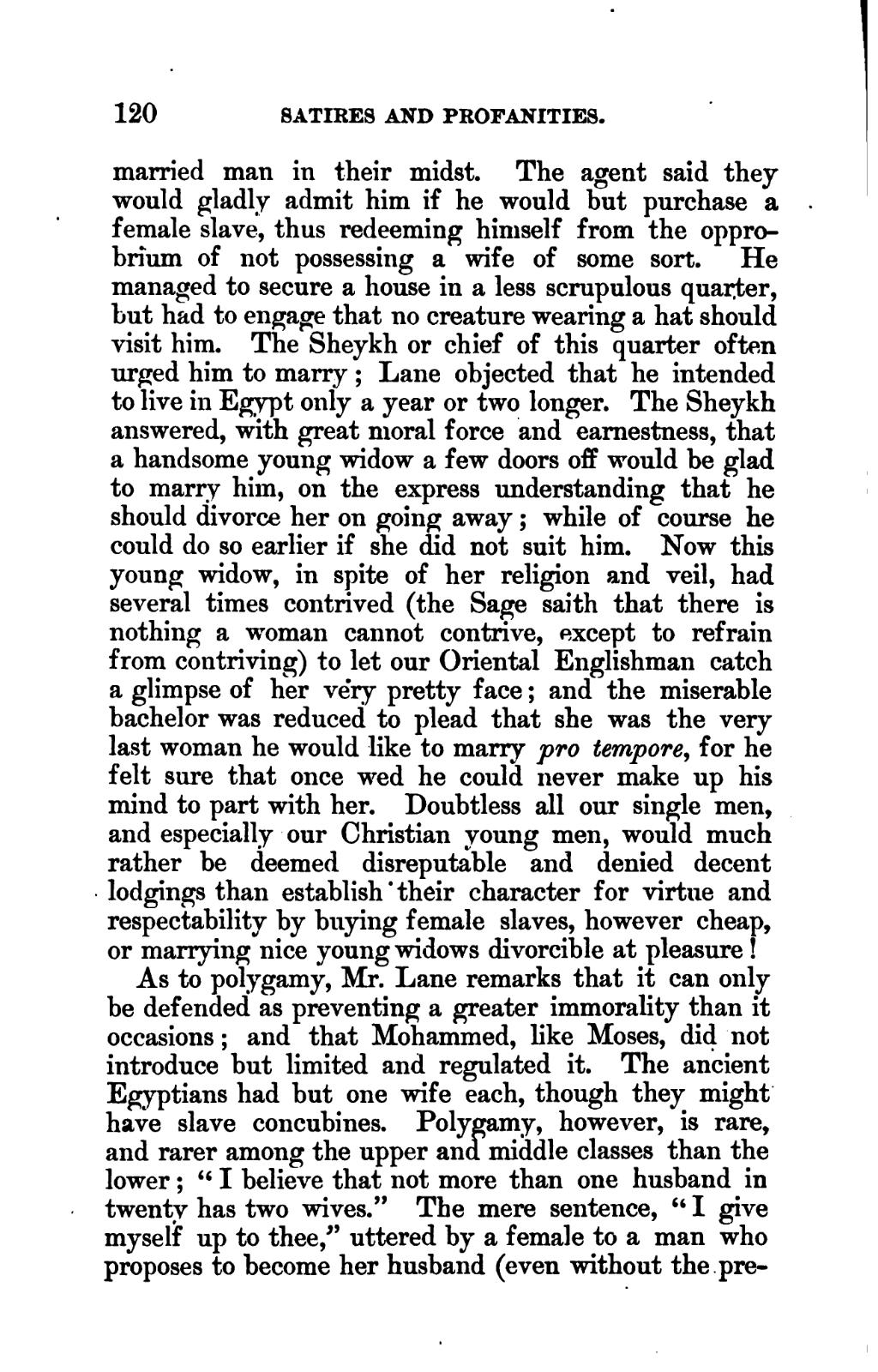married man in their midst. The agent said they would gladly admit him if he would but purchase a female slave, thus redeeming himself from the opprobrium of not possessing a wife of some sort. He managed to secure a house in a less scrupulous quarter, but had to engage that no creature wearing a hat should visit him. The Sheykh or chief of this quarter often urged him to marry; Lane objected that he intended to live in Egypt only a year or two longer. The Sheykh answered, with great moral force and earnestness, that a handsome young widow a few doors off would be glad to marry him, on the express understanding that he should divorce her on going away; while of course he could do so earlier if she did not suit him. Now this young widow, in spite of her religion and veil, had several times contrived (the Sage saith that there is nothing a woman cannot contrive, except to refrain from contriving) to let our Oriental Englishman catch a glimpse of her very pretty face; and the miserable bachelor was reduced to plead that she was the very last woman he would like to marry pro tempore for he felt sure that once wed he could never make up his mind to part with her. Doubtless all our single men, and especially our Christian young men, would much rather be deemed disreputable and denied decent lodgings than establish their character for virtue and respectability by buying female slaves, however cheap, or marrying nice young widows divorcible at pleasure! As to polygamy, Mr. Lane remarks that it can only be defended as preventing a greater immorality than it occasions; and that Mohammed, like Moses, did not introduce but limited and regulated it. The ancient Egyptians had but one wife each, though they might have slave concubines. Polygamy, however, is rare, and rarer among the upper and middle classes than the lower; "I believe that not more than one husband in twenty has two wives." The mere sentence, "I give myself up to thee," uttered by a female to a man who proposes to become her husband (even without the pre-
Page:Satires and profanities -microform- (1884).djvu/129
This page has been validated.
120
SATIRES AND PROFANITIES.
